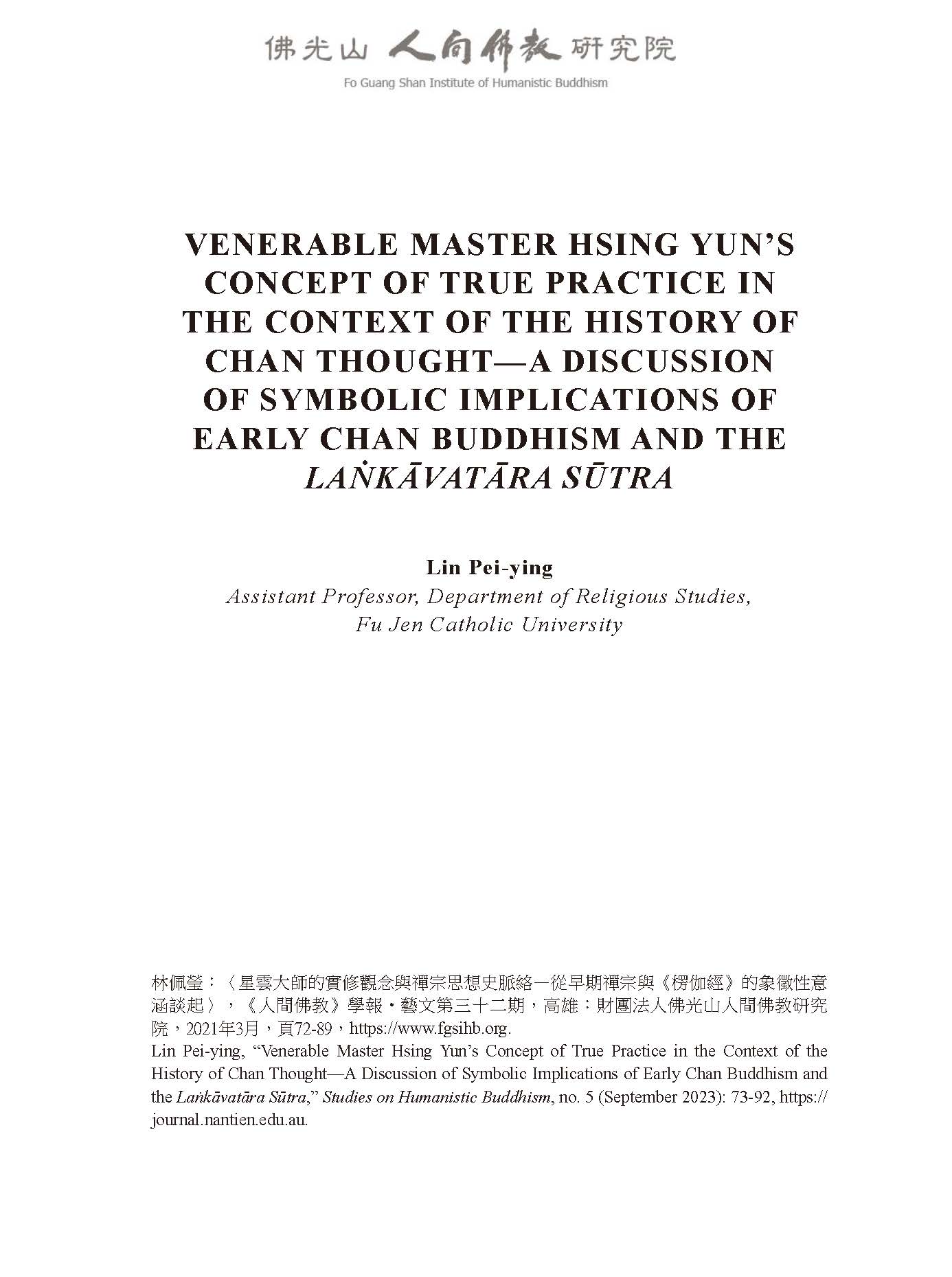
|
Venerable Master Hsing Yun’s Concept of True Practice in the Context of the History of Chan Thought–A Discussion of Symbolic Implications of Early Chan Buddhism and the Laṅkāvatāra Sūtra
作者
Lin Pei-ying
單位職稱
Assistant Professor, Department of Religious Studies, Fu Jen Catholic University
摘要
This article examines Venerable Master Hsing Yun’s thought in the context of the history of the ideas of Chan Buddhism, which can be seen as a continuation of early Chan thought. Contextualizing the practices in the early stage of Chan, this article initially clarifies the influence of the Laṅkāvatāra Sūtra in the early development of Mahāyāna Buddhism in China and the meaning of true practice. The Laṅkāvatāra Sūtra had a significant influence on early Chan masters, especially Bodhidharma. Venerable Master Hsing Yun’s concept of true practice is congruent with the tradition of the early Chan, but is at the same time innovative. His concept of true practice is examined by focusing on four main subjects: 1. the Laṅkāvatāra Sūtra, 2. its relationship with the bodhisattva path, 3. the practice of Chan, and 4. its relationship with the threefold training.
全文下載











